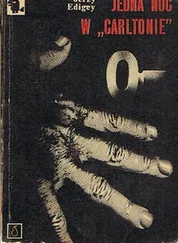“Since she herself paid no attention — she made it clear that she paid no attention — to her own body, which was perfect, she certainly couldn’t, it is clear, pay attention to other bodies that were, after all, less perfect. How in the world could someone so absolute and steeped in her own perfection bother herself with the imperfect corpuses of others — who were imperfect because they exhibited their interest in her, because of their own physiological effusiveness toward her? In that far-reaching manner, delusion in pretended indifference toward her own body condemned her to indifference toward the world. In short, in that masterpiece of tail there was nothing but sex, while she made it clear that there was everything in her but sex. .”
“That’s the basis of their power over us,” someone said after a moment full of piercing bitterness.
“As for me, I like women’s power.” I immediately sensed that the greatest joker, jester, and rogue among the guards was now speaking. That’s what I thought, and I wasn’t mistaken. “As for me, I like women’s power, because I like the kind of power you can make a fool of.”
And once again, suppressed laughs and giggles resounded, glasses clinked delicately, and the train again slowed down.
“And I was once with an overworked widow with three children,” said someone with a trembling voice who seemed prone to tears. “And I was once with an overworked widow with three children,” he repeated once more, perhaps he repeated it for the nth time, in spite of the inaudible murmurs of disbelief, which, although they were inaudible, nonetheless must have given him strength, for he finally cast himself desperately into the whirlwind of narration.
“Yes. I was with an overworked widow. Although she was a widow, she had no financial difficulties. I think that you could even call her a rich widow. Her deceased husband — what he died of, I don’t know, she never wanted to talk about it — her deceased husband quite clearly had left her a considerable estate and income. The widow drowned out her widowhood with innumerable duties and obligations, as well as with a certain excessive zeal in performing everyday tasks. It always seemed to me that she cooked broth a little bit ‘more,’ that she vacuumed the rug a little bit ‘more,’ that she ironed a blouse a little bit ‘more.’ She took care of her three half-orphaned children especially fiercely — that is to say, with unusually fierce motherhood. She brought up all three of them in a perfectionist manner in the general sense, but each of these brats, whom I hated intensely, also had their own specialization, which their mother had imposed upon them. The youngest girl took ballet lessons, the middle one played the piano, and the youngest boy learned foreign languages. Obviously, my overworked widow closely supervised each of these educations, and she supervised them in the rapacious manner so typical of her that I got the impression that it was she herself who practiced the ballet, played the piano, and learned foreign languages. Moreover, in a certain sense that’s how it was: she did indeed practice, play, and learn. You understand, gentlemen, these were all very difficult things: her excessive zeal in performing everyday tasks was difficult, her widowhood was difficult, her cult of her deceased husband was difficult (for example, I asked her what time it was, and she said that the deceased’s Delbana was still going and that it hadn’t yet needed any winding), the presence of her children was difficult, her wide ranging interests were difficult. I would say that her most painful mania was framing. That’s right. Framing. My overworked widow had a pathologically extensive palette of interests, and in addition a considerable portion of that palette was enclosed, literally and metaphorically, in frames. What was it about? Trivially simple things. For example, my overworked widow was a weekend painter, and, in the most ordinary manner in the world, she would mount her works, paintings, and drawings in frames and hang them on the wall. She took photographs (she had several cameras — one for black-and-white pictures, one for color pictures, one for shiny pictures, and a different one for matte pictures), and she would mount the photographs she took in frames and hang them on the wall. She would buy old etchings in antique shops, mount them in frames, and hang them on the wall. She would compose interesting flower arrangements (she was an ardent tourist, and she often took trips out of town), which she would subsequently dry, mount in frames, and hang on the wall. .”
A sudden silence fell. Perhaps I had suddenly fallen into the black abyss of sleep. Perhaps the poor devil had stopped talking, had lost the thread, smitten with incomprehensible pain. Probably both occurred. I must have fallen asleep for a moment, but the ill-starred guard, the lover of the overworked widow with the three children, wasn’t in any state to continue his terrible story.
“And then, and then?” I was awakened by slow and drowsy questions. “Well? And then? What happened then? What happened with her later? What’s next?”
“Nothing. There wasn’t anything. There wasn’t anything next.” His voice, which sounded prone to tears at the beginning of the story, now became unusually solemn and dignified. “There wasn’t anything next. When I realized that I too was one of her fiercely performed duties, which, moreover, she would most prefer to mount in a frame, I felt humiliated, and I left.”
Someone said:
“It won’t be long now. You can see the Palace of Culture.”
“You can’t see anything yet. It’s still dark. We have almost a whole hour to go,” said someone else, who yawned terribly and fell asleep. And this time, toward the end of the journey, I fell into a deep sleep, like a man sleeping for eternity in a Dutch painting, or like an apparatchik of sleep. And then, when I awoke, I heard Father’s voice, or perhaps it was still in my sleep that I heard Father’s whisper, as he told the story of the man who was particularly excited by women who spoke foreign languages. Father made up stories as if he were possessed, narrated about this man as if he were talking about himself. He invented and lied fantastically. This didn’t surprise me either asleep or awake. In the dark-blue depths of the postal ambulance, gliding slowly through the muddy plains, all of them invented things. After all, the story about the woman with fluent mastery of the pen was invented and entirely fictitious, and so was the one about the beauty standing on the curb on Wiślna Street, and even the one who told the story about the deadly, overworked widow with the three children made everything up. The invention of stories about oneself is the duty and irresistible temptation of the true man. The made-up story is the song of his life and death. The story of the loser, the invented story of the loser, is the sign of the winner.
“I don’t know any foreign languages,” Father’s voice said in the darkness. “I don’t speak languages, and maybe that is why I want to be — not so much exclusively as especially — with women who speak languages. But I also wish to state most emphatically that there wasn’t any simple equation here; the more the better: one language — good; two languages — very good; three languages — very, and I mean very , exciting; and with a polyglot you have a genuine orgy. No. Unbridled symmetry arouses my resistance. I prefer restrained symmetry. One language and one woman were enough for me. After all, and finally, there is one woman,” Father lied to the very faces of the guards and Mr. Trąba, although they were plunged in darkness.
And he continued his story about some completely made-up love of his who spoke dazzling French. Supposedly Father’s nonexistent mistress especially liked to speak indecent sentences in French, for example: Fouts-moi à mort. Et puis ecris sur ma tombe que j’ai pris mon pied , she would tenderly whisper in his ear. With odd relish, that dark-haired Romanist supposedly also repeated, time and again, three words that sounded like a magic spell: mille, villes, tranquilles, mille, villes, tranquilles , she supposedly said time and again, and tens of times, in every situation.
Читать дальше












